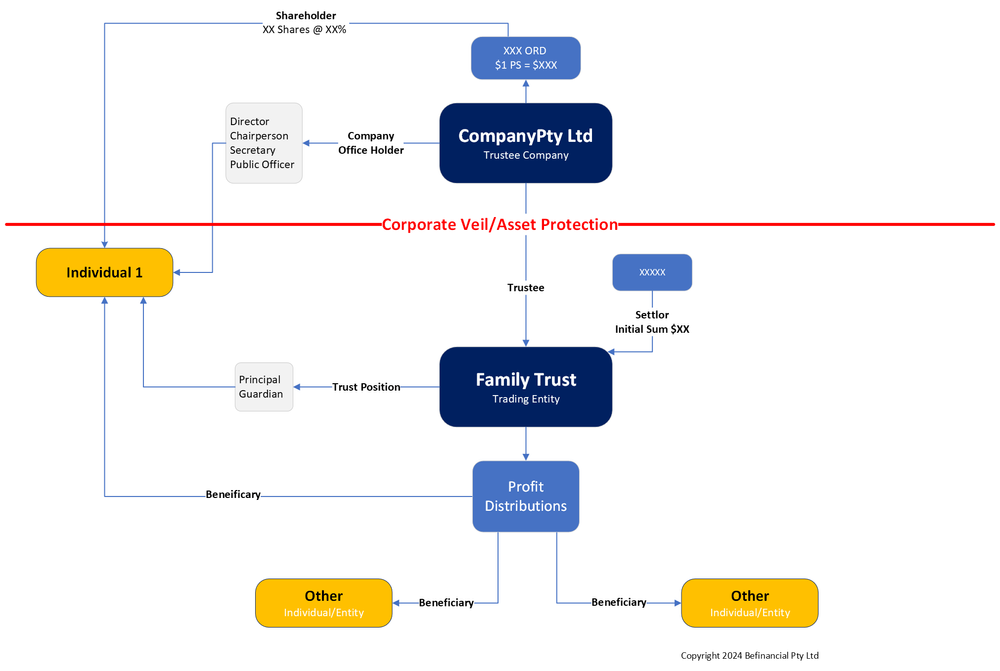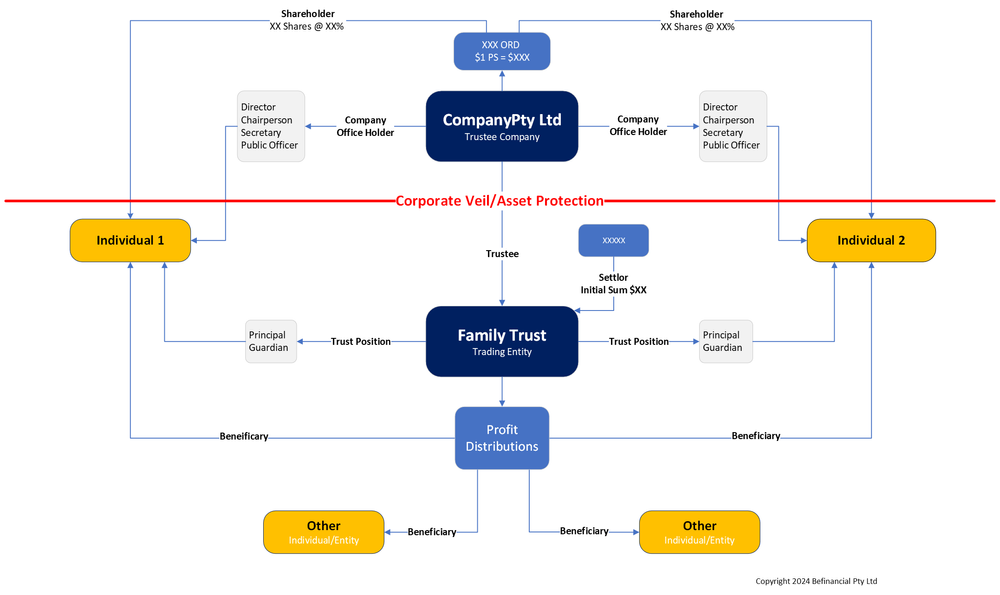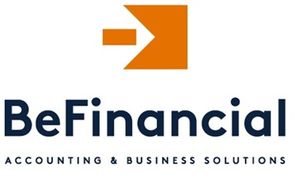Family Trust with Corporate Trustee
Family Trust with Corporate Trustee - 1 Director

Transitioning from a Sole Trader to a Trust: An In-Depth Overview
Introduction
Transitioning from operating as a sole trader to establishing a trust is a significant decision for any business owner. This change can have far-reaching implications for the business's structure, tax obligations, liability, and management. Understanding the key differences, advantages, and potential drawbacks of operating as a trust is crucial for making an informed decision. Additionally, knowing the roles within a trust can help in setting up a robust and effective structure.
1. Understanding the DifferenceSole Trader:
- Structure: A sole trader is an individual who owns and operates a business.
- Liability: The individual is personally liable for all the business's debts and obligations.
- Taxation: Profits are taxed as personal income.
- Control: The sole trader has complete control over the business decisions.
- Structure: A trust is a legal arrangement where a trustee holds property or assets for the benefit of beneficiaries.
- Liability: The trustee can be personally liable for the trust's liabilities, but asset protection measures can be implemented.
- Taxation: Trusts can offer tax advantages, as income can be distributed to beneficiaries, potentially lowering the overall tax burden.
- Control: Control is shared between the trustee and beneficiaries, following the terms of the trust deed.
Pros:
- Asset Protection: Trusts can provide protection against personal liabilities and creditors.
- Tax Benefits: Income splitting among beneficiaries can reduce the total tax payable.
- Estate Planning: Trusts are effective for estate planning and ensuring assets are managed according to specific wishes after the settlor’s death.
- Flexibility: Trusts can be tailored to specific needs and circumstances.
- Complexity: Setting up and managing a trust can be complex and may require professional advice.
- Cost: Establishing and maintaining a trust can be expensive due to legal and administrative fees.
- Compliance: Trusts must comply with stringent legal and tax obligations, requiring diligent record-keeping and reporting.
- Control: The original business owner may need to cede some control over business decisions.
- Settlor: The individual who establishes the trust and transfers assets into it.
- Trustee: The person or entity responsible for managing the trust’s assets and administering the trust in accordance with the trust deed. Trustees have a fiduciary duty to act in the best interests of the beneficiaries.
- Beneficiary: Individuals or entities that benefit from the trust. Beneficiaries can receive income, capital, or other benefits from the trust.
- Appointer: The person who has the power to appoint or remove trustees, ensuring the trust operates as intended.
Outlined steps include obtaining professional advice, registering the company with ASIC, setting up the company structure, and transitioning business operations.
5. Ongoing Compliance
Highlights the importance of annual reviews, tax reporting, and maintaining proper records to meet ongoing compliance obligations.
Conclusion
Transitioning from a sole trader to a trust involves significant changes in the business’s legal and operational framework. While trusts offer benefits such as asset protection, tax advantages, and effective estate planning, they also bring complexities and costs. Understanding these factors, along with the roles and responsibilities within a trust, is essential for making an informed decision.
- Australian Securities & Investments Commission (ASIC) - asic.gov.au
- Australian Taxation Office (ATO) - ato.gov.au
Family Trust with Corporate Trustee - 2 Directors

Book an appointment with Befinancial Accounting.
Contact - 1300 699 161
Email - info@befinancial.com.au
32 Main Rd Bakery Hill, VIC 3350
